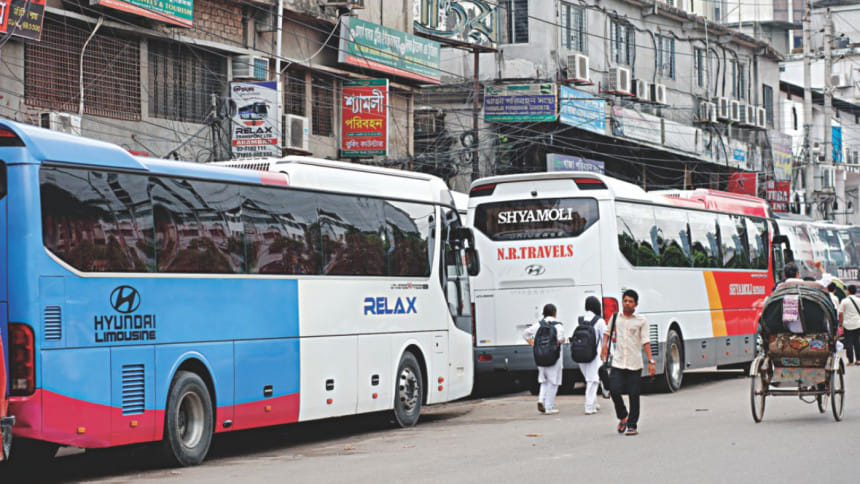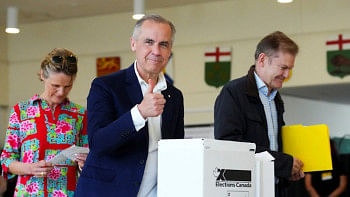Luxury buses make much headway in intercity travel

More and more luxury buses can be seen operating on the highways nowadays driven by a growing demand for a comfortable ride among long-haul travellers amid dust and traffic congestion on the road.
Nearly 1,000 air-conditioned buses from foreign brands such as Scania, Volvo, Hyundai, MAN, Mercedes Benz and Hino can be spotted on the highways every day with passengers from almost every corner of the country.
“There has been a massive change over the years,” said Md Faruk Talukder Sohel, managing director of Shohagh Paribahan, one of the leading intercity coach operators in Bangladesh with a 200-strong fleet, 50 of which are air-conditioned coaches from Swedish manufacturers Scania and Volvo.
Not a single air-conditioned bus could be seen up north 15-20 years ago; such service was available only on the Dhaka-Chittagong, Dhaka-Khulna and Dhaka-Benapole routes then.
But now, 300-400 such buses are serving the northern region, he said.
One of the reasons for the spike in demand for air-conditioned buses is the rise in per capita income, according to Sohel. The weather also plays a part as well as the congestion on the highways.
As a result, the inter-city bus operators are progressively adding air-conditioned buses to their fleet, or are equipping their regular buses with the cooling mechanism.
In so doing, they are also widening business opportunities for bus manufacturers.
Currently, bus engine makers from Sweden, Germany, South Korea and Japan are competing in Bangladesh to win the hearts of transporters, said market insiders.
“Competition is mainly taking place here among Scania, MAN, Volvo and Hyundai,” said Mohammad Abdus Sattar, general manager of Green Line Paribahan, a pioneer luxury intercity bus operator.
Market insiders said the prices of air-conditioned buses range from Tk 1 crore to Tk 2.25 crore, depending on brands and types.
Luxury passenger vehicles began to make their ways into Bangladeshi roads during the late 1990s to cope with the changes in the tastes of consumers who were increasingly choosing buses over trains due to shorter journey time.
The roads carry more than 88 percent of the total passenger traffic in Bangladesh. Waterways and rail carry the rest of the passenger and freight traffic, according to a Planning Commission report on sustainable transportation and infrastructure.
Many bus operators are incorporating air-conditioned coaches to tap into the higher demand that would invariably take place after the completion of the Padma bridge, said Ifthakher Ahmed, assistant general manager of sales & marketing at HNS Automobiles.
HNS is the distributor of Hyundai commercial vehicles in Bangladesh. Sales of air-conditioned buses have been rising by 25 percent a year, Ahmed said.
And one of the main reasons is financing from banks and financial institutions. Banks foot up to 70 percent of the price of an air-conditioned bus, he added.
“The government has declared bus services as a transport industry and the vehicle is the capital machinery in this industry. But, we are yet to get duty benefits to import vehicle and spare parts,” said Sohel of Shohagh Paribahan.
MA Halim Chowdhury, managing director of Pubali Bank, said the transport sector is expanding rapidly riding on a stable economy that has been witnessing more than 6 percent growth on average for the last 15 years.
“Yet, we don't finance new entrants as it is very tough for them to survive amid huge competition in the sector,” said Chowdhury, adding that Pubali has bankrolled Shohagh Paribahan as it is an established company.
“Established firms usually don't default on loans.”

 For all latest news, follow The Daily Star's Google News channel.
For all latest news, follow The Daily Star's Google News channel. 



Comments